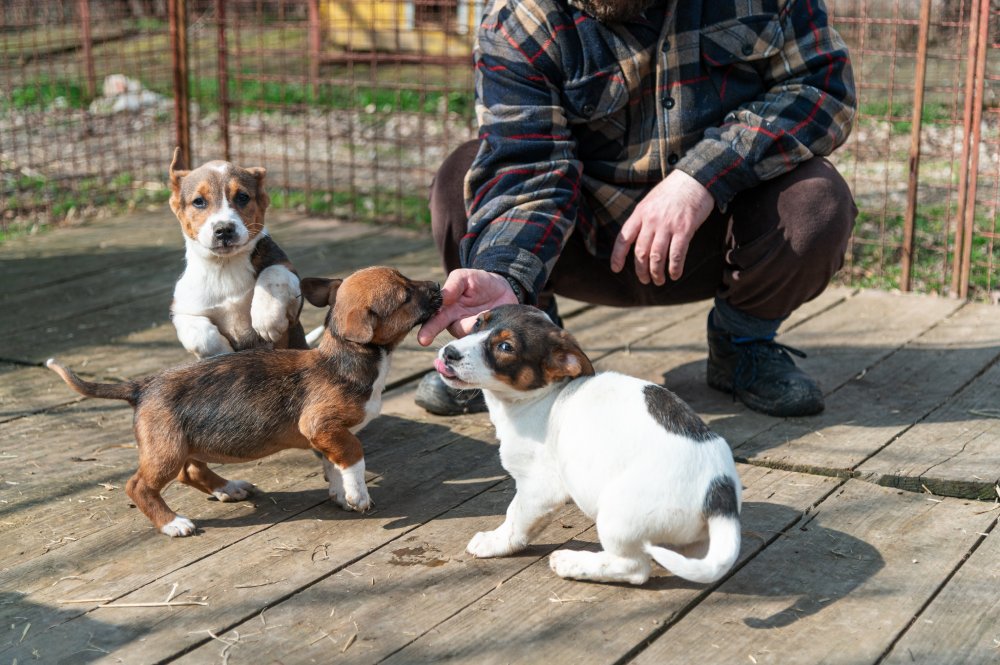Bringing home a puppy is like enrolling them in their first semester of life school—and the curriculum is all about socialization. The experiences your pup has in their first six months will shape how they see the world for years to come. Nail the socialization phase early, and you’ll raise a dog who’s confident, well-mannered, and less likely to develop fear-based behaviors later on.
Use this guide as your go-to puppy socialization checklist to help your dog hit the key milestones that matter most in those early months.
Why Socialization Matters (and Why It Can’t Wait)
Socialization is more than just introducing your puppy to people or other dogs. It’s about teaching them that the world is a safe and manageable place, even when things get unpredictable. Between 3 and 16 weeks old, puppies go through a sensitive developmental window where they’re especially receptive to new experiences. What they learn—or don’t learn—during this time can have a lasting impact on how they handle stress, novelty, and relationships.
If you wait too long to begin this process, it becomes significantly harder (but not impossible) to help your dog feel comfortable with new things.
Puppy Socialization Checklist: Milestones to Meet
While every dog is unique, here are the categories and specific milestones your puppy should experience before six months of age:
People of All Types
Expose your puppy to people of different ages, sizes, skin tones, and clothing styles. That means:
- Children running and playing
- People wearing hats, sunglasses, or uniforms
- Individuals using wheelchairs, walkers, or canes
The goal is to make every new face a normal, positive part of life.
Other Dogs and Animals
Positive exposure to other dogs is crucial. Your puppy should:
- Meet friendly, vaccinated adult dogs with good manners
- Play with puppies of various sizes and energy levels
- See cats, squirrels, or livestock from a safe distance if relevant to your area
Supervised puppy playgroups or structured sessions like those at Innovative K9 Academy can help ensure these interactions are safe and beneficial.
Handling and Grooming
Teach your puppy to tolerate human touch and grooming tasks:
- Gently handle their paws, ears, tail, and mouth
- Introduce brushing, nail trimming, and baths
- Practice wearing a collar, leash, or even a harness or coat
This will make vet visits and grooming much easier for everyone involved.
Noises and Surfaces
Your puppy should get comfortable with various sounds and textures:
- Vacuum cleaners, sirens, doorbells, loud music
- Walking on tile, carpet, gravel, metal grates, or wood floors
- Riding in a car or hearing traffic from a distance
Play sound desensitization videos at low volume to help with this indoors.
New Environments and Experiences
Help your puppy learn that new places aren’t scary:
- Take short, positive trips to pet-friendly stores or outdoor cafés
- Visit parks, sidewalks, and different neighborhoods
- Practice walking near shopping carts, strollers, or joggers
A puppy who learns to roll with new settings is more adaptable as an adult.
Safety First: Know Your Puppy’s Limits
Socialization should be positive, never overwhelming. Watch for signs of fear or stress, and don’t push your pup too far too fast. Use treats, praise, and distance to help them feel comfortable, and let them set the pace.
If you’re feeling unsure or overwhelmed, puppy training programs or board and train options at Innovative K9 Academy can help guide the process and give your puppy expert-supervised exposure in a safe environment.
What If You Miss a Milestone?
If your puppy is over six months and missed some key socialization steps, don’t panic. It just means you’ll need to work more gradually and intentionally. A qualified trainer can help you reintroduce missed experiences in a way that builds confidence without fear.
Conclusion
The first six months are the most important chapter in your puppy’s emotional development. With the right exposure and support, you’ll set the stage for a lifetime of confidence and good behavior. Use this puppy socialization checklist as your guide, and remember—it’s not about being perfect, it’s about being consistent.
For hands-on help from experts who specialize in puppy training, reach out to Innovative K9 Academy. Our proven programs support puppies and their people through every stage of early development.

